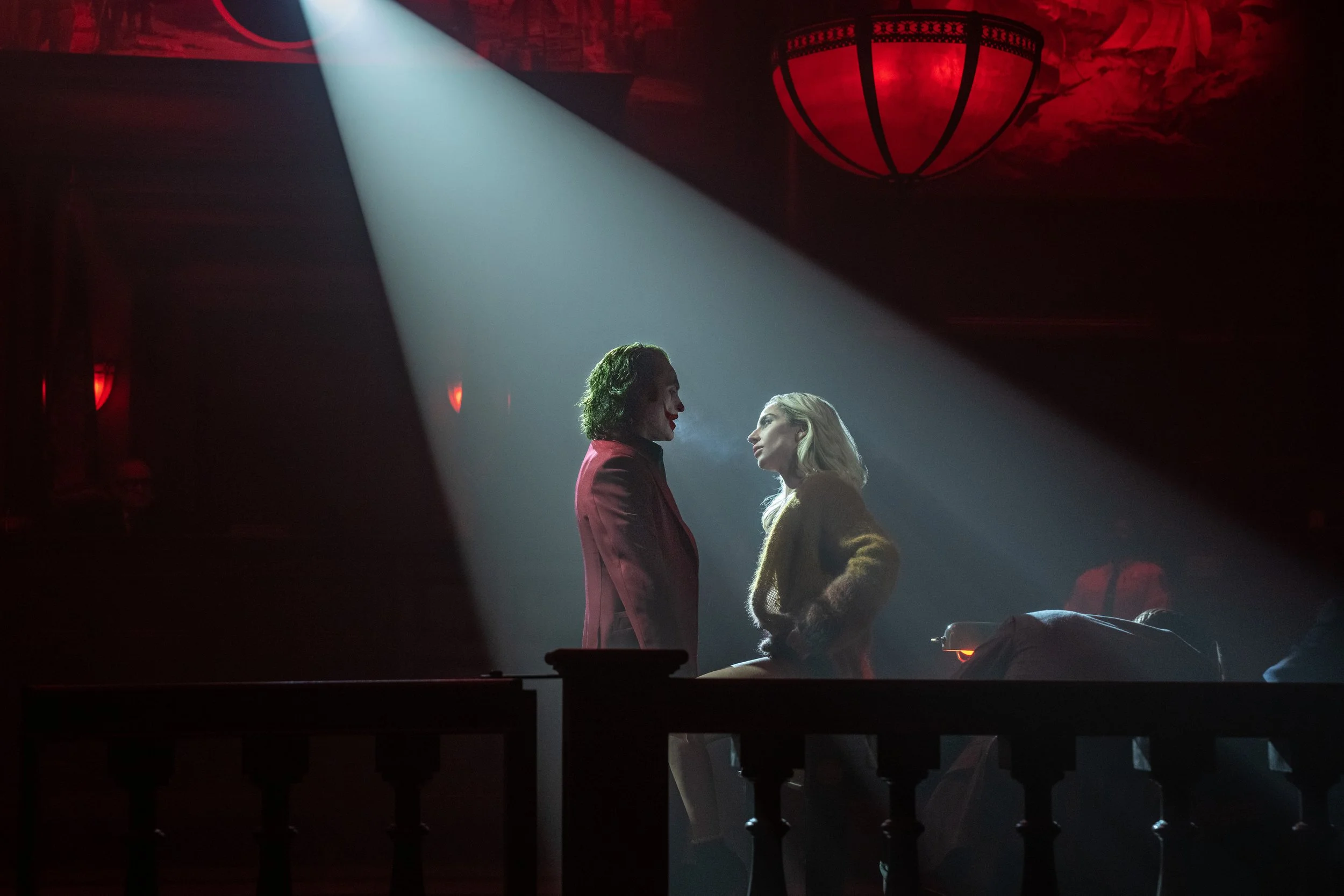Joker: Folie à Deux | 2024
JOAQUIN PHOENIX as Arthur Fleck/Joker and LADY GAGA as Lee Quinzel in Warner Bros. Pictures’ “JOKER: FOLIE À DEUX,” a Warner Bros. Pictures release.
If Todd Phillips' Joker (2019) was the origin story of the Joker, then his latest film, Joker: Folie à Deux is the story of his deconstruction. It's an admittedly bold move for a comic book movie to spend its entire running time dismantling the character it just spent a whole movie setting up, and there's certainly some interesting thematic ground to cover here; unfortunately, Folie à Deux suffers from some of the same issues of self-importance that plagued its predecessor.
Picking up where Joker left off, Folie à Deux finds Joaquin Phoenix's Arthur Fleck in Arkham Asylum awaiting trial for the crimes he committed in the previous film. While he languishes away behind bars, a shell of his former self, he meets Lee (Lady Gaga), a fellow inmate who brings a light into his life via music. Lee encourages Arthur to embrace his inner Joker, and going against the advice of his lawyer (Catherine Keener) he decides to embrace his persona and turn the trial into the defiant circus his rabid followers crave.
Turning the Joker sequel into a musical was certainly an unexpected choice, but the musical numbers are surprisingly lackluster, despite Gaga's powerhouse presence and some evocative lensing by cinematographer Lawrence Sher. There are certainly interest elements here—the idea of revealing that the wannabe demagogue is just a pathetic little man with no special skills or insight is an undeniably timely one. That the mob would continue to follow his ideas even after he's been revealed as a charlatan is even more compelling.
Unfortunately, it's all too messy to have much of an impact. At least Joker had Scorsese’s King of Comedy and Taxi Driver to give it some structure, but even with New York, New York as a vague inspiration, its sequel feels adrift, unable to stand on its own even as a pale imitation of better films. Folie à Deux wastes no opportunity to remind us that it is a Big Important Film about Big Important ideas, but for what? If Fleck isn't really the Joker, what was the point of all this? There's something to be said for pulling the rug out from under the audience, but Phillips doesn't manage to justify it. Joker didn't seem to know what it was trying to say, and Folie à Deux confirms its thematic dubiousness because the movement created by Fleck remains nebulous and undefined. It's as if the film is afraid to actually say anything while desperately wanting to be about something. The result is a slog through two hours of vaguely comic-tented nihilism that manages to render both itself and its predecessor utterly pointless.
